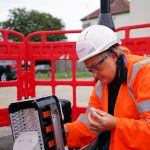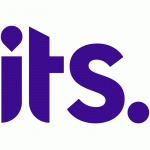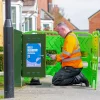Ofcom CEO’s “Key Test” for Openreach is a Fibre Co-Investment Deal with Rival
The Chief Executive of the UK telecoms regulator, Sharon White, has told a cross-party committee of MPs that a “key test” of Ofcom’s new regulatory approach to BT will be whether or not Openreach can “do a co-investment deal with another operator” following their “full fibre” broadband consultation.
Earlier this year Ofcom reached a voluntary agreement with BT (here), which among other changes brought about the “legal separation” of Openreach from the telecoms giant and the establishment of a new framework for the next decade of broadband regulation in the United Kingdom (e.g. easier access to Openreach’s existing cable ducts and cheaper FTTC superfast broadband).
Since then Openreach has begun consulting on their aspiration for a wide-scale deployment of “full fibre” (FTTP/H) broadband, possibly to as many as 10 million premises by around 2025, which Vodafone is understood to have taken a strong interest in (here).
Advertisement
Last week the regulator told an inquiry by the Digital, Culture, Media and Sport Committee that a “key test” for Openreach’s new independence would be whether or not they could do such a deal “over the coming months“.
Sharon White, Ofcom’s CEO, said:
“I would also say a key test over the next few months is: does Openreach manage to do a co-investment deal with another operator for some of these very fast services? I think that will be a key success criterion as to whether the new model is working in practice.”
We should point out that Sharon wasn’t specifically referencing residential connectivity here. Sharon later added that Ofcom was “very directly holding Openreach to the fire” and they would further judge the success of their reform by “whether we get the new investment” and “whether we see over time quality of service starting to improve.”
In fairness, Openreach has a good track record when it comes to meeting Ofcom’s Quality of Service targets, although we’re still waiting for something more on the investment front than their existing hybrid-fibre G.fast commitment to 10 million premises by 2020, plus 2 million covered by “full fibre” ultrafast FTTP broadband. Openreach’s industry focused FTTP consultation concluded last month and outcome should come soon-ish.
The committee also spent quite a lot of time discussing the Universal Service Obligation (USO) proposal for a 10Mbps minimum broadband speed, which didn’t produce too many surprises but there was one exchange where we got the impression that Ofcom is perhaps expecting the Government’s Secretary of State and BT to reach a voluntary agreement (as proposed here); as opposed to a mandatory one being imposed on BT with stiffer requirements.
Advertisement
Damian Collins (Chair) – Conservative:
“Are you not concerned that a USO deal might fall foul of just those same problems there whereby a condition that a USO will be an amount of money, which BT say they need to deliver the completion of the network, that money will be recouped through people’s bills, maybe even starting before the rollout itself has started, and that you as the regulator may not have the power to unpick that deal once the Government have agreed to it?”
Sharon White (Ofcom):
“We will see what the nature of the deal is. Our initial estimates suggest—and we do not have absolutely firm numbers—that these are not huge sums of money for the USO in terms of additional prices because the money is spread over the lifetime of the asset, which is about 20 years. In the first instance, we are looking at the first three years of that. We will see. Once the Secretary of State and BT have reached an agreement, we can then take on board only those costs that we deem to be reasonable, so they will be our estimates, not BT’s estimates.”
Sharon also promised that if a voluntary deal is reached then Ofcom would still “examine in detail what BT claims its cost are and what we believe are appropriate costs to be recovered … it will be a robust process.” The regulator was similarly challenged on the question of whether or not handing such a deal to BT would give the operator a “dominant position” and leave “everyone else being squeezed out.”
As we already know, the big problem is that nobody else (excluding KCOM in Hull) has come forward to take on the significant legal and financial responsibility of delivering such a USO, either across the UK or only in specific areas.
Sharon White said:
“It is interesting. The Committee may remember that under the previous Secretary of State we were asked to test the market a couple of years ago precisely on this point to see whether there might be some competition or some choice of providers. At that stage, we were reasonably hopeful because 10 megabits per second would allow you to bring in a mobile operator to do wireless for the last mile.
As it turned out, the only interest from our expressions of interest on behalf of the Government was from BT. Because we are a competition authority and we think competition drives investment and drives better choice and lower prices for consumers, it would have been great to have been in a position where there was another operator interested.
We looked at that process very carefully and the board saw the results of this, and it was only BT that said, ‘We are interested in delivering this for the Government‘”
Finally, the committee also touched on Ofcom’s somewhat divisive 2017 Wholesale Local Access Market Review, which among other things has proposed to reduce the wholesale cost of Openreach’s popular 40Mbps (10Mbps upload) FTTC (VDSL2) broadband tier for consumers (here and here).
Some ISPs, such as TalkTalk and Sky Broadband, welcome this change (cheaper packages etc.), while infrastructure builders (Virgin Media, Gigaclear etc.) are perhaps rightly concerned that by making FTTC so cheap Ofcom are running the risk of discouraging investment in new or alternative / faster networks (i.e. there’s less reason to spend more on an ultrafast FTTP, Cable or G.fast service). Ofcom say it’s difficult to get the balance right.
Advertisement
Ian C. Lucas (Labour):
“But the fibre investors are not very happy with your wholesale local access review. You have had a letter, haven’t you, from—”
Sharon White:
“I get lots of letters all the time.”
Ian C. Lucas (Labour):
“Well, they say that your proposals will stall fibre infrastructure investment, and it is signed by lots of chief executives.”
Sharon White:
“Lots of people, and I should show you the other letters—”
Ian C. Lucas (Labour):
“Well, okay, some companies you might have heard of: Openreach, Virgin Media, Gigaclear, techUK. What is your response to that?”
Sharon White:
“It is worth giving a little bit of background. The particular decision to take it as a proposal at this stage is how much money we allow BT to charge its wholesale customers for superfast broadband. We are balancing keeping enough money in the system to incentivise investment without, to be frank, screwing the consumer.
We are taking an approach that we took with superfast broadband, which is we want to allow BT the incentive to invest in these really fast networks, the 100 Megabits per second, the stuff that we are lagging behind, but on standard superfast broadband we reckon that BT has more than recouped its investment to the degree that if we did not impose what we call a charge control, ie some cap, BT would make excess profits of another billion pounds. Consumers would be worse off by about another £26.
We are trying to balance, as always, how we ensure there is enough ability to flex your pricing, because it is risky for these very fast networks, without essentially ripping off the consumer. Those who depend on the BT network obviously like the low prices. Those who are building new networks would like us to put even more money in the system. We are weighing all those letters from a range of chief executives and lots of other comments over the next few months.”
Dame Patricia Hodgson (Ofcom Chair):
“Sharon has had letters from other operators, like Sky Broadband and TalkTalk, who say, “You are absolutely right to address the cost for the consumer of superfast” because what we need to do is to build demand, which then translates through to demand for a faster fibre connection. It is a difficult balance, isn’t it?”
On the whole Sharon White concluded by saying that she felt as if the “early signs” of Openreach’s progress on implementing all of the regulator’s required changes are “reasonably positive“.
Mark is a professional technology writer, IT consultant and computer engineer from Dorset (England), he also founded ISPreview in 1999 and enjoys analysing the latest telecoms and broadband developments. Find me on X (Twitter), Mastodon, Facebook, BlueSky, Threads.net and Linkedin.
« Fixed Wireless Broadband ISP Connexin Boosted by £10m Investment


















































Comments are closed